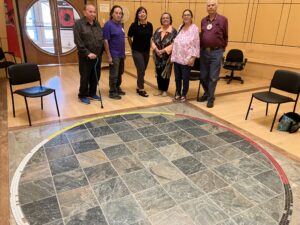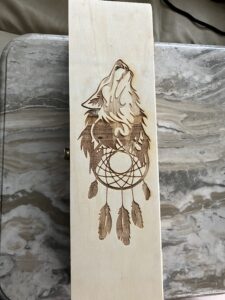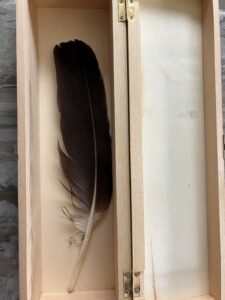 Wisdom Road is staying in America, but I secured an invitation to visit the First Nation community at Kitigan Zibi, about 100 miles north of Ottawa. It is way out of the way, but I decided to visit to make a point. National borders are ephemeral lines on a map, drawn by the most recent victor in humanity’s desire to control pieces of the shared earth. Just because the current members of this ancient community live north of a border drawn by old white-wigged Europeans a few hundred years ago does not diminish the value of their wisdom for those of us to the south.
Wisdom Road is staying in America, but I secured an invitation to visit the First Nation community at Kitigan Zibi, about 100 miles north of Ottawa. It is way out of the way, but I decided to visit to make a point. National borders are ephemeral lines on a map, drawn by the most recent victor in humanity’s desire to control pieces of the shared earth. Just because the current members of this ancient community live north of a border drawn by old white-wigged Europeans a few hundred years ago does not diminish the value of their wisdom for those of us to the south.
I met six elders of the Kitigan Zibi Anishinabeg nation around a tiled circle at their cultural center, and they agreed to share with me their stories and their wisdom. Here are just a few of the excerpts that will make it into my book:
“I grew up with my family on a trap line further north. One day when I was four years old, the police came on a float plane and took me from my mother’s arms and I remember looking at her out the window and I did not know if I would ever see her again. They took me to that school, and my name became Number 75.”
“My grandparents and their parents were all connected to the land, because they had nothing else. Our language is very descriptive about the land. For example, we have many, many words for “snow”. It paints a picture for the listener to see an image of what that snow looks like or what that snow is doing. Is it melting? Is it near water? Is it hard as ice? Is it glistening?”
“Our parents told us to love who you are, be proud of who you are. Our parents always say, remember, this is your territory. When we would go to the United States, the border guard would ask, ‘Are you from Canada?’ My dad would say, ‘I’m North American Indian’. The guard would say, ‘No, you’re Canadian’, and they would exchange words. And finally, they let my father pass through the border. But never once did my dad say he was Canadian. That was his belief. That’s what he instilled in us.”
“We had a fully developed society before contact with the Europeans. Our governance structure was just totally wiped out. Our society was matriarchal; the women were in charge. It had to be that way because the men were gone hunting or trapping for long periods of time. But as soon as settlers came, they didn’t want to meet women. The French said, ‘we can’t talk to you women. We want to talk to your male leaders.’ So women had to quickly select a spokesperson, a hunter or a warrior, to be at the front. So right there, our culture started to quickly shift, and maybe in a direction that wasn’t as healthy for us. Women are life givers, we are nurturers, we are teachers. We look at the well being of everybody.”
“We are sitting in a cycle now because that is how we always were before. Thinking and working in a linear hierarchy was imposed on us. It didn’t work for us. And now we’re breaking free from that way of thinking, from that mindset. We see circles in restorative justice, in how the youth share and come to a consensus. That’s really what the circle is about: all directions, all age groups, all voices. Look at the circle here: the East is the yellow, the red is to the south, black is to the west, the white is to the north. And that is just the most basic description of the circle. We could talk about phases of life. We could talk about seasons, about cultures, about women, and we could talk about children, education, health, justice, community services. They all are built into this circle.”
“It doesn’t have to be a circle on the floor. It doesn’t need to be indoors. A circle can happen outside, sitting on the ground, sitting on a chair, around your dinner table, in your living room on a comfy chair. As long as you’re all facing one another, you can make that all important eye contact and you can build or rebuild your relationships.”

 After we finished meeting, one of the elders, Tony, who had been named Number 75 when he was torn away from his mother, found me in the village and gave me an eagle feather, in a box embossed with his clan picture, the wolf, “To help you on your journey”. This feather is never leaving my RV.
After we finished meeting, one of the elders, Tony, who had been named Number 75 when he was torn away from his mother, found me in the village and gave me an eagle feather, in a box embossed with his clan picture, the wolf, “To help you on your journey”. This feather is never leaving my RV.











Leave A Comment